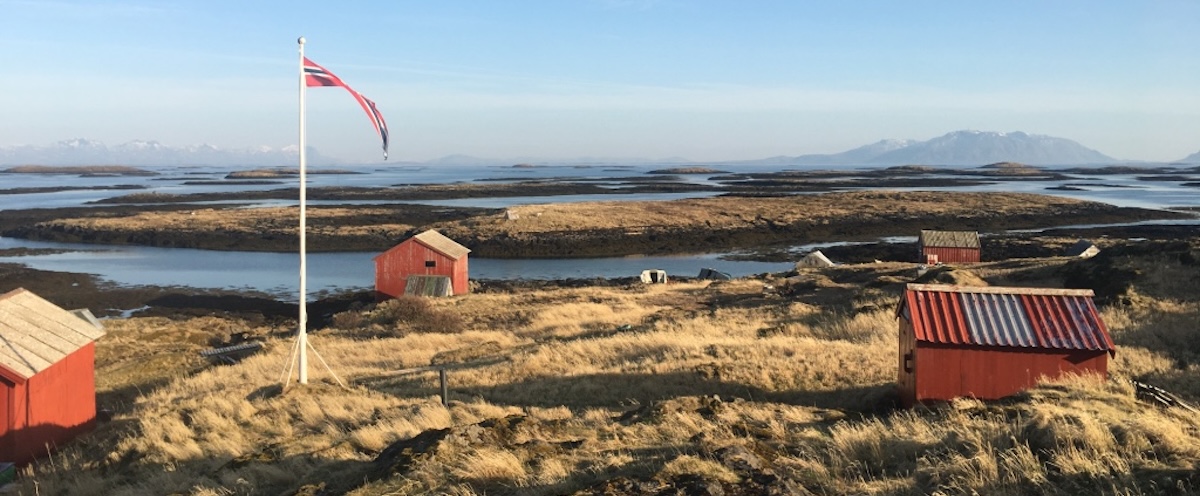The age of humans will pass. Perhaps the end has already begun, though it may take a long time to play out. If this were a Hollywood movie, the final scenes would be a man running around with a gun in some ruined cityscape, but I don’t think the last people will hang around in cities: there’s no food in urban areas when order breaks down. People will flee to the extremities. They will run from the chaos, disease, and killing machines to the places where a life can still be scraped from our ruined ecosystems. The last humans will, like many of the first, hold to the coast, scratching a living from the sea and the shore. I imagine the last human on earth being a woman on a rocky shoreline. I met someone like that once, a woman right at the outermost edge. A woman still living after everything she knew and understood had ended.
Article continues after advertisement
*
It was about ten years ago. I’d journeyed out to an island off the coast of Norway. It took two days of flights, trains, and boats to get there, and a lot of waiting around in terminals. With every transfer, the gates required longer walks from the heart of the airport, and the planes got smaller. The last flight was on a twin-propeller plane. The air stewardess had to squeeze sideways past rows of oil-rig workers with puffy Arctic coats. It was May, but on the bleak coastline below it looked like the snow had just melted.
My brain was searching for a way to explain this strange woman, for metaphors, or boxes to put her in. I was struggling.
At home I was living in an old farmhouse that we were renovating, in a Cumbrian village close to where I’d grown up. I had a wooden shed out the back with a computer in it. My work was researching how to protect wild and fragile places from the growth of global tourism. My father, who had only ever worked with his hands, was confused about how that was a job, and sometimes so was I.
A few days earlier, my boss, Peter, had called. He was sending me to a place called the Vega Archipelago. The Norwegians took conservation seriously, he said, and we could learn from them.
Everything I knew about Norway could have been written on the side of a cinnamon bun, but my job was to learn fast. I discovered the archipelago was halfway up the Norwegian coast, in the region called Helgeland, on the 66th parallel, just below the Arctic Circle.
Some of the birds that wintered in our valley spent their summers on that coastline, but hardly any humans made the journey.
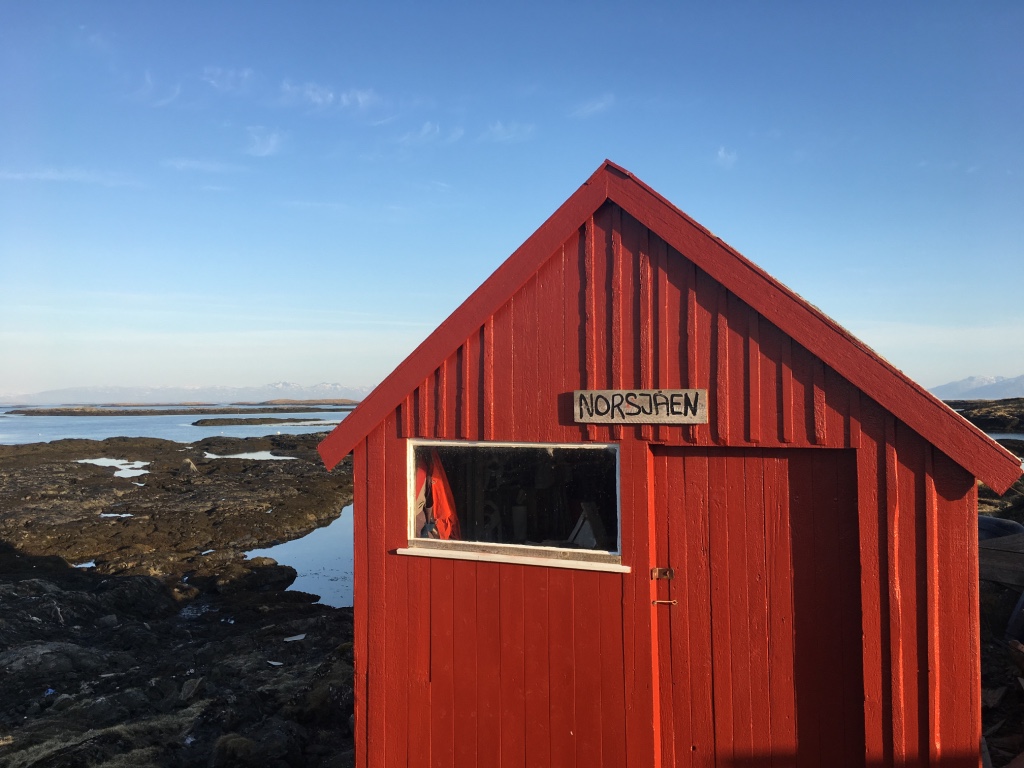
My destination was Vega, the biggest island in the archipelago—just a few miles long. From the boat, it seemed little more than a chain of mountain tops rising out of the sea. As we got closer, I could see there were farms and clusters of houses scattered between patches of wilderness. Two cars were waiting for passengers, and a man stood by one of them. He loaded his passenger and then asked me where I was going. He said he would take me too. After a while we passed through a tiny town with a few shops, a garage, a school, and a large wooden church. A mile or two down the road I was dropped off in a little fishing village by an old fisherman’s shack, where I would stay.
I spent two days in a dull office building, watching presentations by the tourism board. I scribbled down stats and asked the questions I was supposed to ask. But I found myself fascinated by the remotest islands, and a strange tradition that seemed to keep people going out to them.
Most of the slides from these islands showed images of women. Women in little boats. Women making nests or holding eggs. Women’s hands clasping ducklings. Women sitting and cleaning eiderdown. And women peering out of small wooden huts in epic Arctic wildernesses. Everything in the photos looked a little scruffy and sun-faded, like these were images of long-forgotten people from the 1960s or 70s. But as I listened to the officials speak about the women in the photos it became clear they had been taken recently. Just a few miles away, across the waves, the women were still working. They seemed to live on the rocks. In one photo, a woman had a rifle slung over her shoulder.
I had thought I’d reached one of the furthest-flung islands, but it turned out that hundreds of littler ones lay beyond it. The archipelago stretched way out into the Norwegian Sea. Vega was still civilization. Further out were places with no electric or shops or other amenities. These were the places where the women worked. Each spring, the officials explained, the women travelled out to these islands and built little wooden huts for wild eider ducks, protecting them from predators. Then, when the birds had hatched their ducklings and taken them back to the sea, the women would gather, clean, and sell the valuable eiderdown left behind. This was an ancient tradition– and it was still hanging on, if only by a thread. To do this work, the women needed peace and solitude. The authorities’ job was to protect what lay beyond the horizon from the rest of us.
But, on the final afternoon, they surprised me. They said I could go for a glimpse of that world. I was going to meet a “duck woman.”
*
I was taken out in a fishing boat with a few others. A man with whiskers was at the helm. The boat bounced across the waves, and every mile further out felt wilder and harsher, just the open sea and occasional rocky outcrops. Everyone on the boat was excited and a little nervous, like kids on a school trip.
Eventually we reached quieter water, where countless little islands and skerries rose just a few meters above the sea, rocks everywhere. We slowed to a crawl and navigated down the channels. The man gestured to the rocks and said what I took to be the name of the place. I asked the guide what that name meant. The guide and the helmsman tried a few versions between them. The guide said it translated as “feather island.” But the helmsman grumbled a little, and told me that his people had always called it “the place of tides.”
Our boat navigated down the channels, winding knowingly past tide-marker poles, moving closer and closer to a tiny island, only a few acres in size, but slightly higher than the others. Beneath a little hill in the middle of the island, tucked away from the worst Atlantic gales, was a white clapboard house and some scattered red barns. This seemed to be the final outpost before the ocean. In the distance, larger waves became white as they ripped on the reef. We passed through one last channel and entered a little bay that stretched all the way to a jetty beneath the house. The man eased the throttle.
I had no great love of the sea, no romance in me about islands. My heroes weren’t wandering poets enraptured with the sea. But this place was beautiful. We had arrived on a strange, watery planet. I looked around and saw a sea eagle lift from a tide pole, wafting across the waves on giant, ragged wings.
When I turned back, my companions were all staring out at a woman on the shore. Her hair was blowing loose in the wind. The tide had gone out, and she was stood on the edge of a large plateau of rock covered in seaweed—a desolate black field. She stood there, totally alone in this vast estate of rock, ocean, and sky. The flatness of our surroundings meant we could see for many miles, as far as the snowy mountains on the mainland, and back to Vega to the south. The whole coast curved around us like a giant C—a huge bay that held the archipelago.
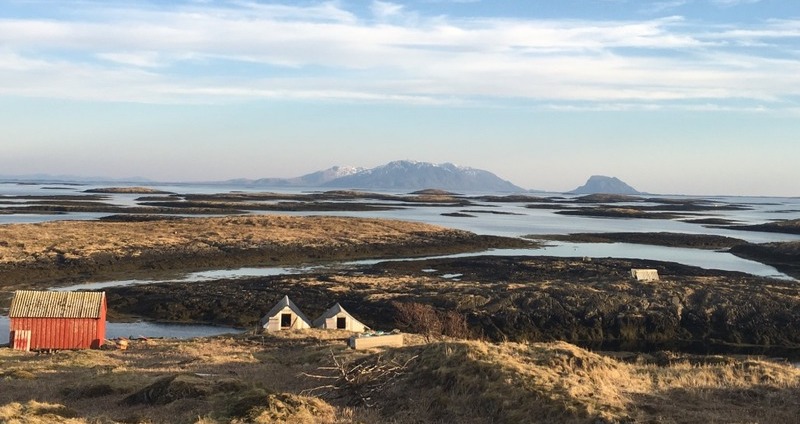
The woman seemed tiny, like a figure in a vast painting. She was no more than five feet tall, and dressed in a woollen jumper, an unzipped fleece, dark trousers, and top-turned-down wellington boots. She was holding what looked like a broken plastic mop handle, as if to guard this isolated place. She was, somehow, hostile, like we’d strayed in and broken the order of things. My brain was searching for a way to explain this strange woman, for metaphors, or boxes to put her in. I was struggling.
She made the little hairs between my shoulder blades stand up. I was almost breathless. The guy at the wheel asked my guide, a little nervously, whether the woman knew we were coming. “Yes,” she replied. “I left a message.” The man looked unconvinced. I couldn’t work out what this woman had done to everyone on the boat, me included. We were almost hypnotized by her. Then she took a few steps and raised her hand in a kind of welcome. The spell was broken. She was now just a woman, and we were just visiting her on a boat. I wondered what the hell had happened.
She walked across the rocks to the wooden poles of the jetty to meet us. We glided in. Guillemots flap-splashed away across the smooth surface of the bay.
*
Her name was Anna. We couldn’t have been with her for longer than an hour. She welcomed us with cups of tea and sugared pancakes, but it was clear to me she wouldn’t be sad to see us leave. While the others made polite conversation, I found myself staring at her. She looked back and smiled, and I sensed, or thought I sensed, an unspoken connection.
After a while, she told everyone else to stay and finish their tea and nodded to me. She took me across the grass to show me the wild eider ducks she had tamed, sitting on fluffy grey nests in a dilapidated collection of old henhuts, barns, and abandoned cow byres. She lifted the wing of one of the broody ducks and showed me the eggs and some ducklings beneath. The birds looked anxious when I moved, but they trusted her. I said they were beautiful, and I told her as best I could about my family’s farm at home. That a few days earlier I had been caring for my flock, and a raven had killed a couple of newborn lambs. She nodded gravely, like maybe we were the only people there who understood this kind of thing. We heard the voices of the others and she groaned a little. We were two naughty kids caught misbehaving, and we were about to be separated.
I couldn’t stop thinking about the old woman on the rocks. There was something still alive in her that had died in me.
Before going back on the boat, I shook Anna’s hand. It just like my grandmother’s, bony and firm. As she said goodbye, I was suddenly unnerved by how familiar she seemed. We went down to the jetty and motored away. I went back to my own life. And that should have been the end of it.
*
Ours is a dark and chaotic world. We are all in need of lights to follow. On that island I felt I had met someone who had made a life on her own terms. I was increasingly sure that I, on the other hand, had not. Not long after I left Vega, my father died. Then so did several elders from our community: men and women whom I had looked to for guidance when I was young. And, as the years passed, I began to feel unmoored, like a piece of timber drifting on the current.
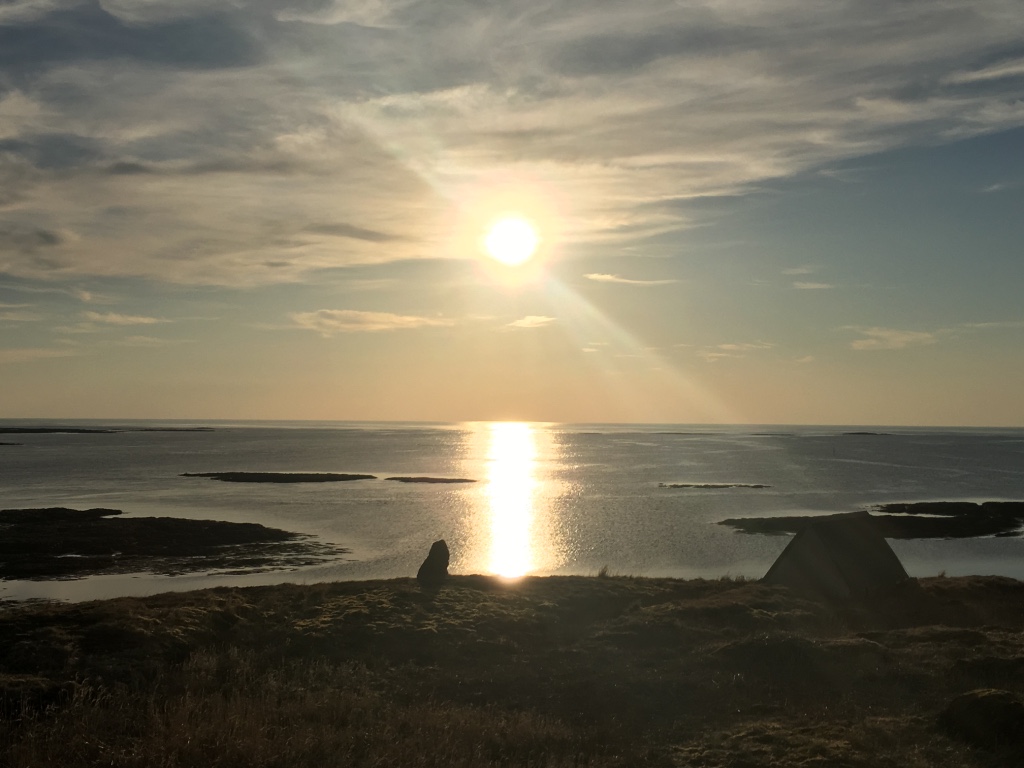
The feeling grew. I worked long hours trying to succeed in a modern world I didn’t like very much. I’d doubled my salary, and then doubled it again, but rarely felt any satisfaction or happiness. I was a poor husband, father, brother, and son. I began to lose faith in the certainties that had sustained me. I was growing less sure, and more confused. My work took me to places where the world was breaking; places that had, until now, survived. I saw children lying under sheets of tin by roadsides, and hospitals in slums plagued with rats and filth. Despair began to follow me home. Birds like lapwings and curlews were vanishing from the skies above our farm. I could no longer see the point in trying to mend our fields when everything around us was so broken. I had once had endless reserves of hope and self-belief, but they were beginning to run out.
Some nights I couldn’t sleep. I’d lie anxiously staring at the ceiling. Part of me just wanted to escape. To run away and hide.
I couldn’t stop thinking about the old woman on the rocks. There was something still alive in her that had died in me. I had seen it in her eyes. I needed to go back and work out what it was—the urge was overwhelming. It was like someone had shown me a few lines of a truly great book and then closed the covers tight shut. I had no idea how I might ever get back there.
Seven years passed. Then, one day, I wrote Anna a letter, and sent it to her via the guide who had taken me. I asked if she was still going out to work on the island and whether she might let me visit her, learn about her work, and maybe write about her. I would keep quiet, work to earn my keep, and try to stay out of the way. She replied a few weeks later to say the coming spring was to be her last season on the eiderdown island before she retired, because her health was deteriorating. She remembered me; I was the only Englishman ever to visit her. I must bring work clothes and good boots, and come quickly.
A few days later I stood on her doorstep on Vega, suddenly painfully aware that we didn’t speak the same language, and that this might be a terrible idea for us both.
__________________________________
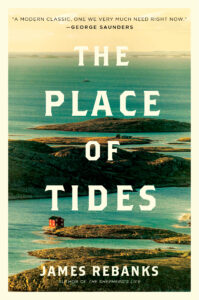
Excerpted from The Place of Tides by James Rebanks. Copyright © 2025 by James Rebanks. Available from Mariner Books, an imprint of HarperCollins Publishers. Used with permission from the publisher. All photos courtesy the author.
